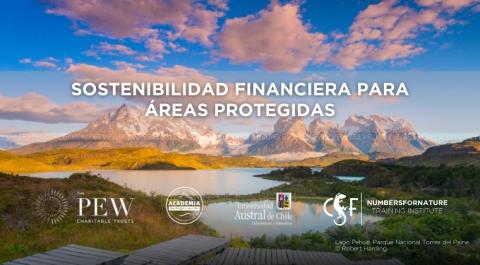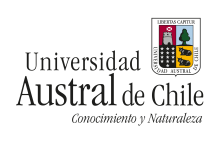
Our First Hybrid Course!
In order to build institutional capacities to improve the financing of protected areas in Chile and other countries in South America, the course "Sostenibilidad Financiera de Áreas Protegidas" was held on August 21 and December 13. It was taught by the Numbers for Nature Institute of the Conservation Strategy Fund, with the support of The Pew Charitable Trusts and the Universidad Austral de Chile through its Austral Patagonia Program.
This unprecedented course in Chile was aimed at professionals from the public, private, and civil society sectors working in protected areas. This included those involved in identifying funding opportunities, valuing ecosystem services and natural capital, designing and/or managing funds (own or third-party), designing and executing budgets, and ensuring accountability. For this first edition, officials from the National Forest Corporation (CONAF) from different regions of Chile were selected, along with professionals linked to public organizations, non-governmental organizations, and international professionals connected to protected areas in Paraguay, Argentina, Bolivia, Peru, and Colombia.
Over its 17-week duration, conducted virtually with one in-person meeting, the 30 participants gained knowledge in economic foundations, financial planning, funding opportunities, economic valuation, sustainable business plans, communication strategies, and more. By the end of the course, 29 out of the 30 participants met the certification requirements.
During the training, participants developed profiles for sustainable financing strategies. These projects received feedback from the CSF technical team, made up of four expert economists, and were later presented to a panel of seven people during an in-person meeting held from December 11 to 13 in Santiago, Chile. It is expected that the developed profiles can be implemented and become solid financing mechanisms for the proposed protected areas and that the students can apply what they learned throughout the course in their workplaces. These profiles were a practical way to empowr participants to directly apply the lessons and tools from the course to their work. The participants will go on to develop their profiles into a solid financial mechanisms for the Protected Areas in Chile.
The entire CSF team thanks The Pew Charitable Trusts for their financial support for this course and the Universidad Austral de Chile for their assistance and logistics provided from the beginning to the end of the course.
Below is a video summary of the course featuring testimonials from some of the participants.


